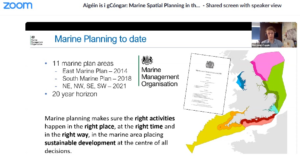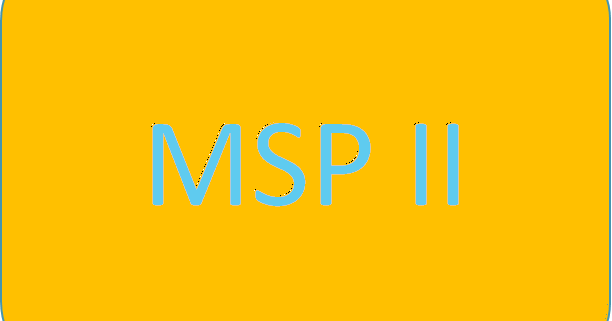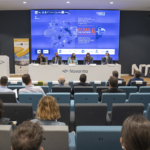MSP II: Agéin is i gCóngar: Spatial Planning Perspectives in the Atlantic Area
Regulators’ and aquaculture producers’ perspectives in marine spatial planning from Ireland and England, Aigéin is i gCóngar, took place on 6th of July 2021. This was a follow-up to the first part of this series from Ireland and Portugal on the 24th March 2021, “Éire go hIbéire,” hosted by Access2Sea project partners Údarás na Gaeltachta and CIIMAR, Éire go hIbéire.
WATCH THE EVENT HERE, read the summary below
July 6 2021
Access2Sea http://access2sea.eu/ is an Interreg Atlantic Area-funded project looking toward new opportunities for more competitive and sustainable blue growth in the Atlantic Area. To this end, project partners Swansea University and Údarás na Gaeltachta hosted three speakers from their respective countries England and Ireland. Welsh spatial planners we contacted were unfortunately unavailable today.
Teresa Morrissey, Aquaculture Executive at the Irish Farmers’ Association was first up to give an aquaculture producers’ perspectives on marine planning: What Marine Planning means for Irish Aquaculture. Her presentation gave an overview of the industry as a whole, including its importance not simply as a food producing sector but in terms of environmental and community sustainability. Ultimately, she zoned in on the well-reported lacking legislative support for the aquaculture industry as being the greatest challenge facing the aquaculture industry here for some years now.
The subsequent speakers shared regulatory perspectives as marine planners. Introducing marine spatial planning in England, Benjamin Coppin, Marine Planner at the Marine Management Organisation (MMO) updated on the recent adoption of the North East, North West, South East and South West Marine Plans, as well as the development of Strategic Areas of Sustainable Aquaculture Production, which can help protect opportunities for marine aquaculture in England by informing decisions around marine licensing. Additionally, brexit, though not responsible for stagnation in the industry’s output there has caused a rethink in terms of diversification of output agenda.

Figure: Marine Planning in England divided into 11 planning areas and is based on a simple planning philosophy
Presenting Ireland’s legislative framework was Tom Woolley, Marine Planning Advisor at the Marine Planning Policy and Legislation Department of Housing, Local Government and Heritage. As it happens, Tom has spent several years with the MMO in England and the so-called DMAP system, Designated Marine Area Plans, in Ireland mirrors to some extent the England planning-led development of the aquaculture industry. As well as an overview of marine spatial planning he introduced the National Marine Planning Framework, NMPF, as well as the newly published Maritime Area Planning Bill, launched this week under NMPF. The framework, which will apply to a maritime area of approximately 495,000km², outlines a vision for how we want to use, protect and enjoy our seas in the years up to 2040.
The Marine 2040 discussion proceeded and indeed preceded by robust discussion from the Terersa Morrissey and other attendees from the aquaculture sector. Among the talking points were:
- Whereas monitoring and enforcement forms a major pillar of NMPF, producers’ representatives repeated their, at this stage, mantra there is no legislative support for the aquaculture industry, the DAFM, Department of Agriculture and the Marine declined to participate in the spatial planning process
- It was expressed as “difficult to understand” that the aquaculture and fisheries sectors are absent in the Maritime Area Planning Bill. The planning bill, it was noted in specific reference to its DMAPs, has the ability to be progressive in terms of promoting the aquaculture industry but there seems to be a feeling that the lack of support from the DAFM contrasts sharply with the renewable industry sector, a sector that may become an El Dorado for in investment which is the very much not so in the case of the aquaculture industry.
**********************************************************************************************
Please get in touch with Marcus or Sara, details below, for any information or to register your interest.
Thanks to all our speakers today, co-presenter Sara from Access2Sea and to all who participated.
Further information, links from today’s session and contact:
Hosts:
Marcus Ó Conaire
marcus@udaras.ie, https://www.linkedin.com/in/óconaire-marcus/
Sara Da Silva Pires Marques Barrento
s.i.barrento@swansea.ac.uk, https://www.linkedin.com/in/sarabarrento/
**********************************************************************************************
Links:
Irish Farmers Association Aquaculture Committee https://www.ifa.ie/sector-committees/aquaculture-committee/
England’s MMO, today’s speaker Benjamin.Coppin@marinemanagement.org.uk
And a few England links referred to: https://www.gov.uk/government/news/adoption-of-marine-plans-marks-big-step-forward-for-englands-seashttps://www.gov.uk/government/publications/identification-of-areas-of-aquaculture-potential-in-english-waters-mmo1184
Ireland Marine Spatial Planning msp@housing.gov.ie
And a few Ireland links referred to MAP Bill: https://www.gov.ie/en/publication/a1a65-maritime-area-planning-bill/
NMPF: https://www.gov.ie/en/publication/60e57-national-marine-planning-framework/
Programme and flyer for today’s event can be downloaded at http://access2sea.eu/mara-07-2021/
Programme and flyer for March’s event can be downloaded at http://access2sea.eu/mara-2021/



